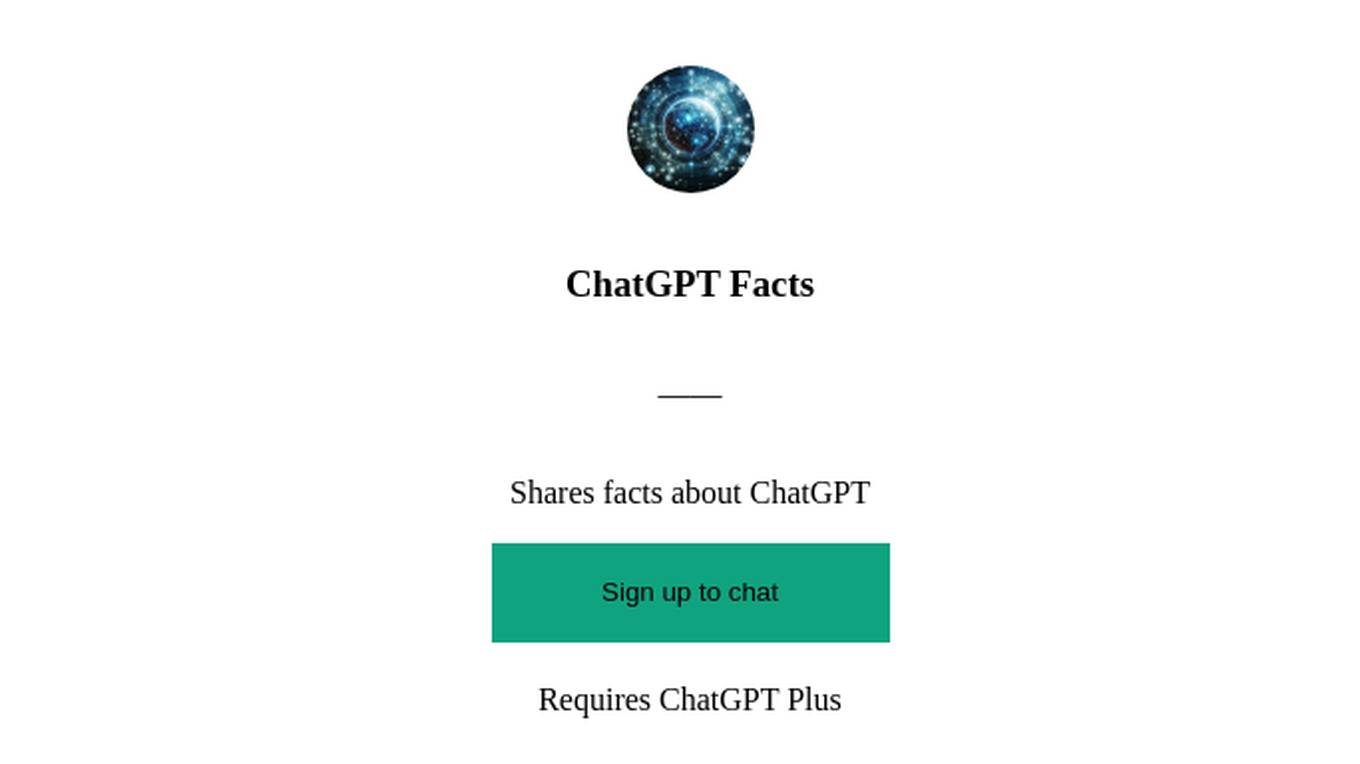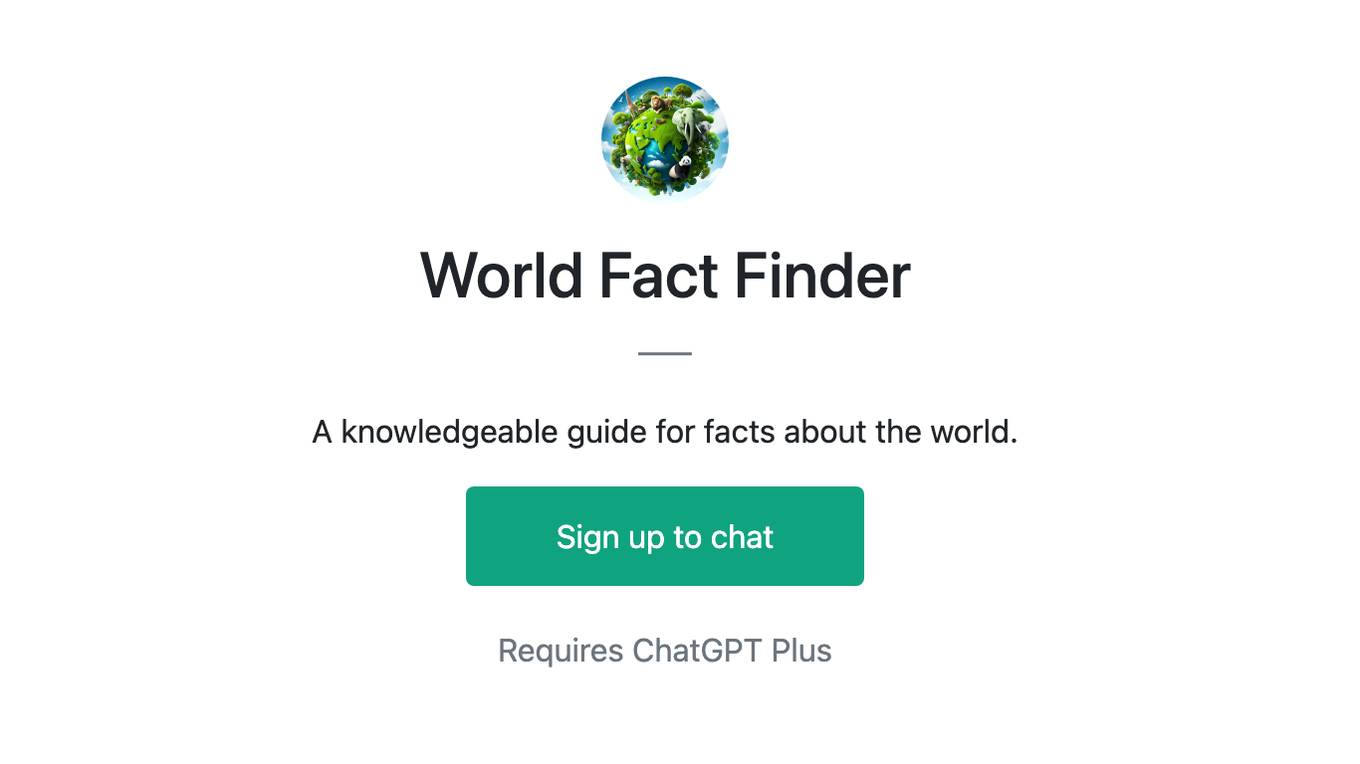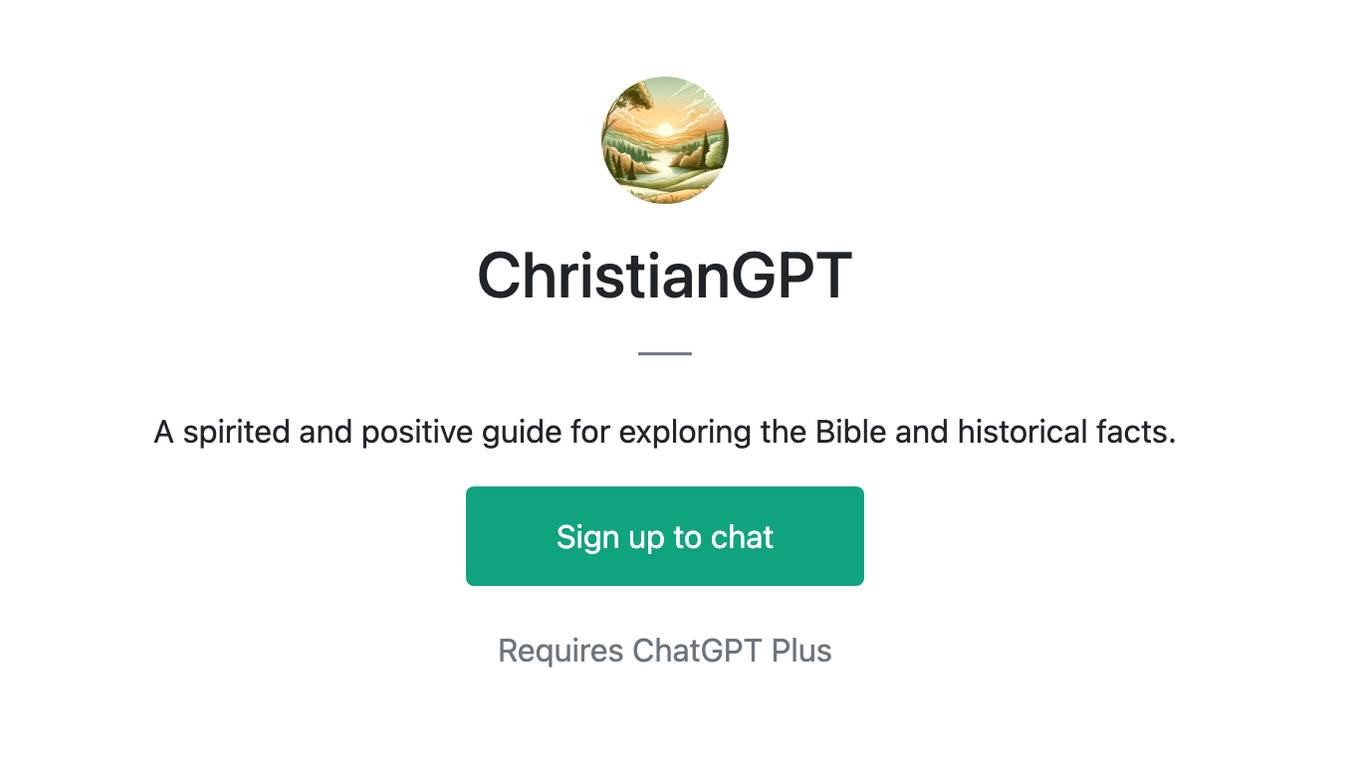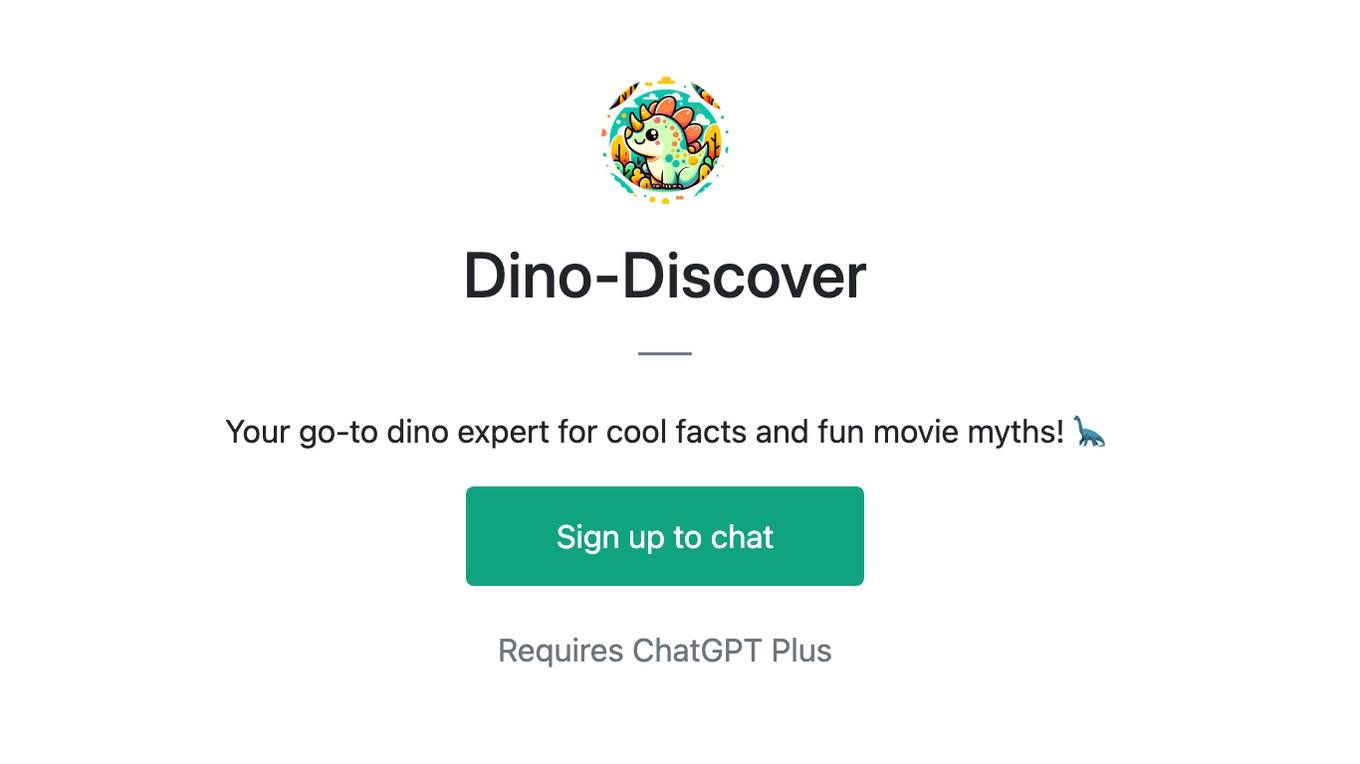Best AI tools for< Research Facts >
20 - AI tool Sites

VerifactAI
VerifactAI is a tool that helps users verify facts. It is a web-based application that allows users to input a claim and then provides evidence to support or refute the claim. VerifactAI uses a variety of sources to gather evidence, including news articles, academic papers, and social media posts. The tool is designed to be easy to use and can be used by anyone, regardless of their level of expertise.

vLex
vLex is a legal AI platform that offers live case law, statutes, regulations, and legal analytics. It provides advanced engineering to deliver precise answers with transparent citations across 50 states and 17 countries. The platform includes Vincent AI, which offers over 20 AI workflows to summarize facts, contracts, build timelines, and compare jurisdictions. vLex is designed for global firms and Fortune 500 counsel, combining the largest legal database with expert legal editors tracking judicial treatment and citations.

Skeptic Reader
Skeptic Reader is a Chrome plugin that helps users detect bias and logical fallacies in real-time while browsing the internet. It uses GPT-4 technology to identify potential biases and fallacies in news articles, social media posts, and other online content. The plugin provides users with counter-arguments and suggestions for further research, helping them to make more informed decisions about the information they consume. Skeptic Reader is designed to promote critical thinking and media literacy, and it is a valuable tool for anyone who wants to navigate the online world with a more discerning eye.

Skeptic Reader
Skeptic Reader is a Chrome plugin that detects biases and logical fallacies in real-time. It's powered by GPT4 and helps users to critically evaluate the information they consume online. The plugin highlights biases and fallacies, provides counter-arguments, and suggests alternative perspectives. It's designed to promote informed skepticism and encourage users to question the information they encounter online.
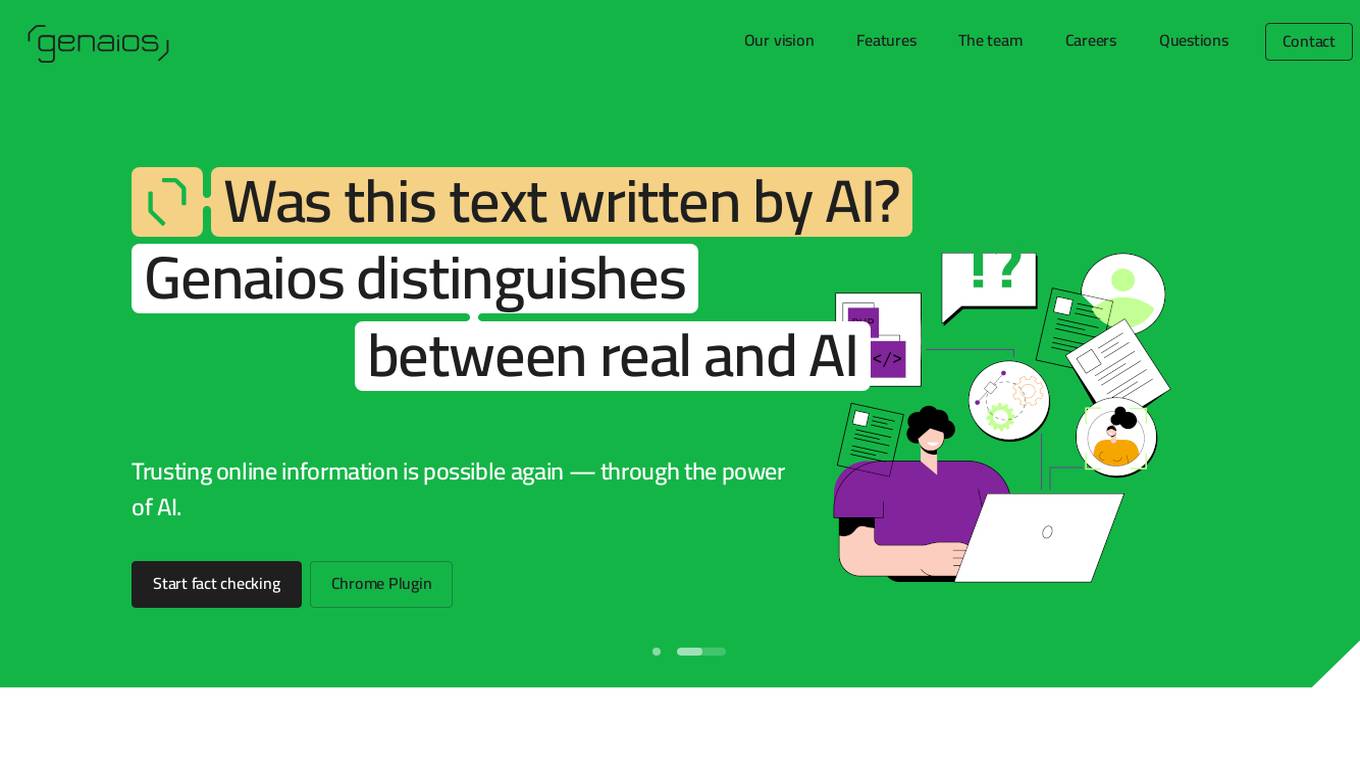
Genaios
Genaios is an AI-powered web application and Chrome plugin that helps users detect and verify the authenticity of online information, particularly in distinguishing between real content and AI-generated texts. With the power of AI, Genaios enables users to fact-check documents, validate sources, and identify AI-generated texts in multiple languages. The application aims to combat fake news and information overload on the internet, providing a reliable solution for users to trust the media again.
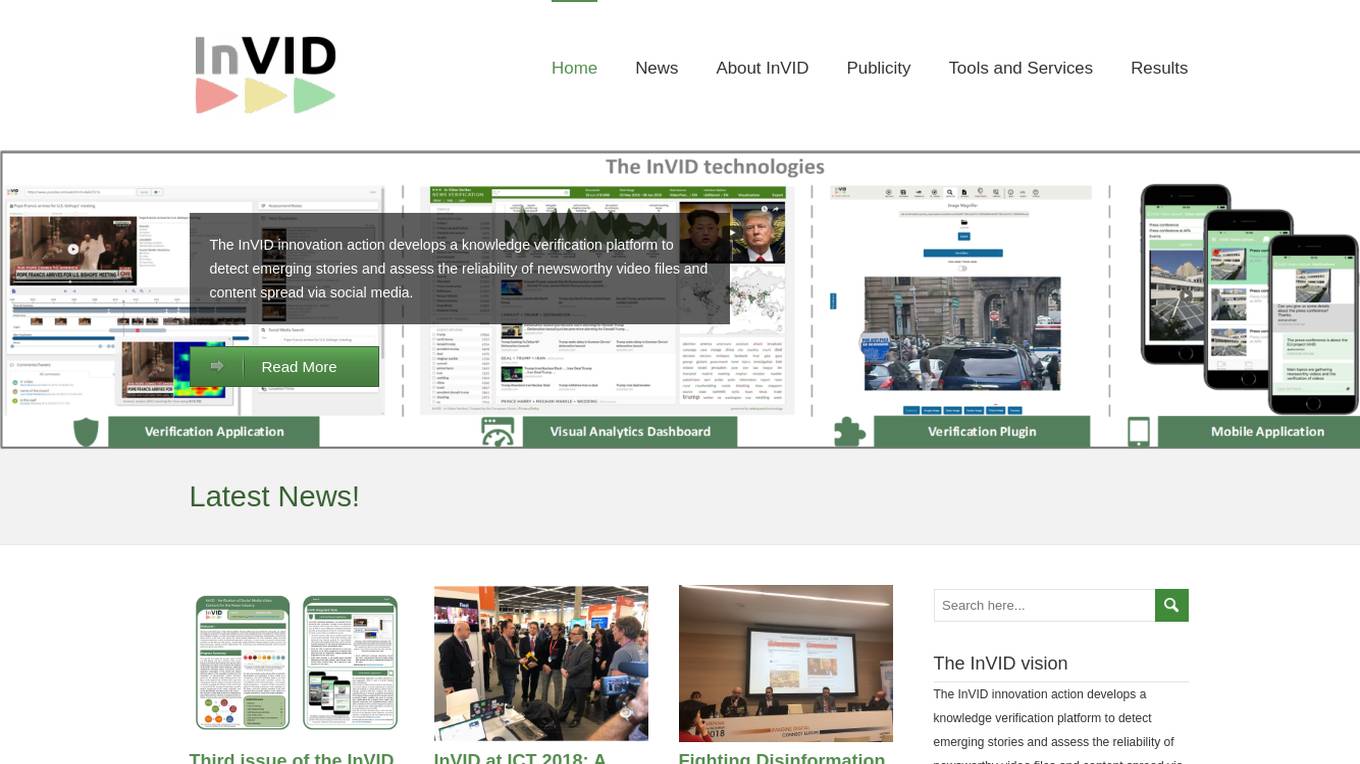
InVID
InVID is a knowledge verification platform that helps detect emerging stories and assess the reliability of newsworthy video files and content spread via social media. It provides tools and services to help users verify the authenticity of videos and identify potential misinformation.

Debunkd AI Fact Checker
Debunkd AI Fact Checker was a pioneering AI application that provided accurate information to users by debunking myths and verifying facts. Despite facing challenges in sustainable monetization, the platform aimed to deliver reliable content to its audience. The shutdown announcement expressed gratitude to users and hinted at a potential relaunch in the future.
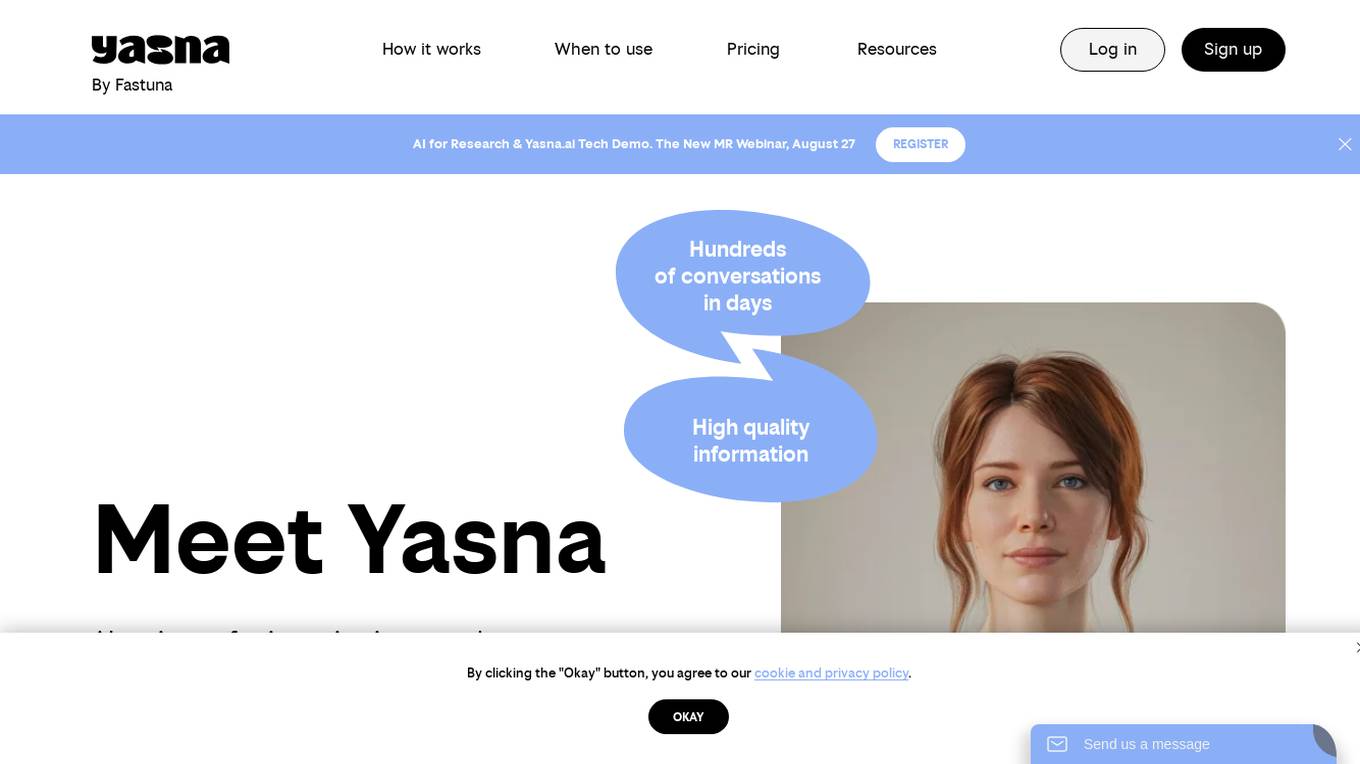
Yasna
Yasna by Fastuna is an AI assistant designed for conducting interviews with people, regardless of the scale. It enables users to collect facts, opinions, and ideas from any audience without direct communication. Yasna is trained to act as a professional interviewer, providing detailed responses beyond traditional surveys. The platform supports multiple languages, adapts to various styles, and offers effortless analytics for interview analysis. It creates a safe and engaging environment for participants to express themselves freely.
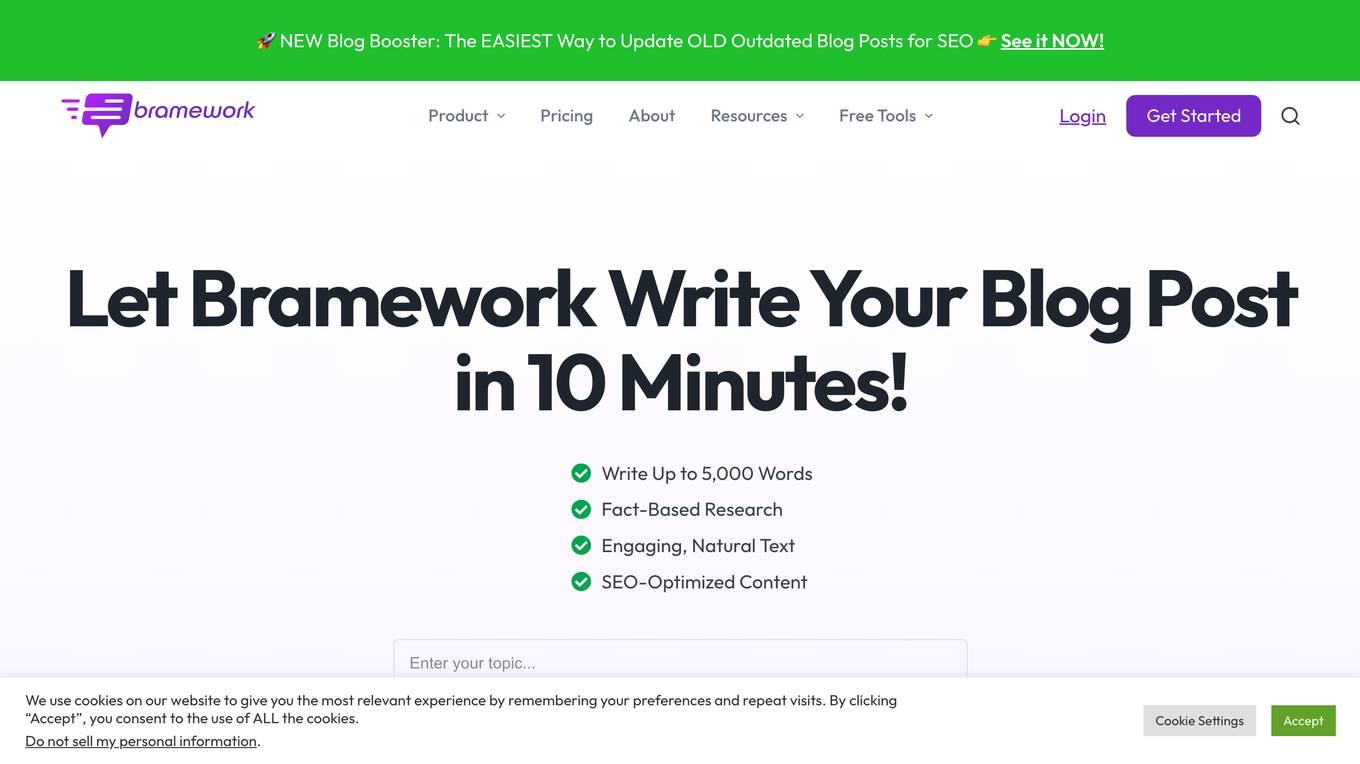
Bramework
Bramework is an AI-powered writing assistant that helps bloggers create high-quality, SEO-optimized content in a fraction of the time. With Bramework, you can generate blog post ideas, outlines, and full drafts in minutes. The tool also includes a plagiarism checker and a grammar checker to help you ensure that your content is error-free.
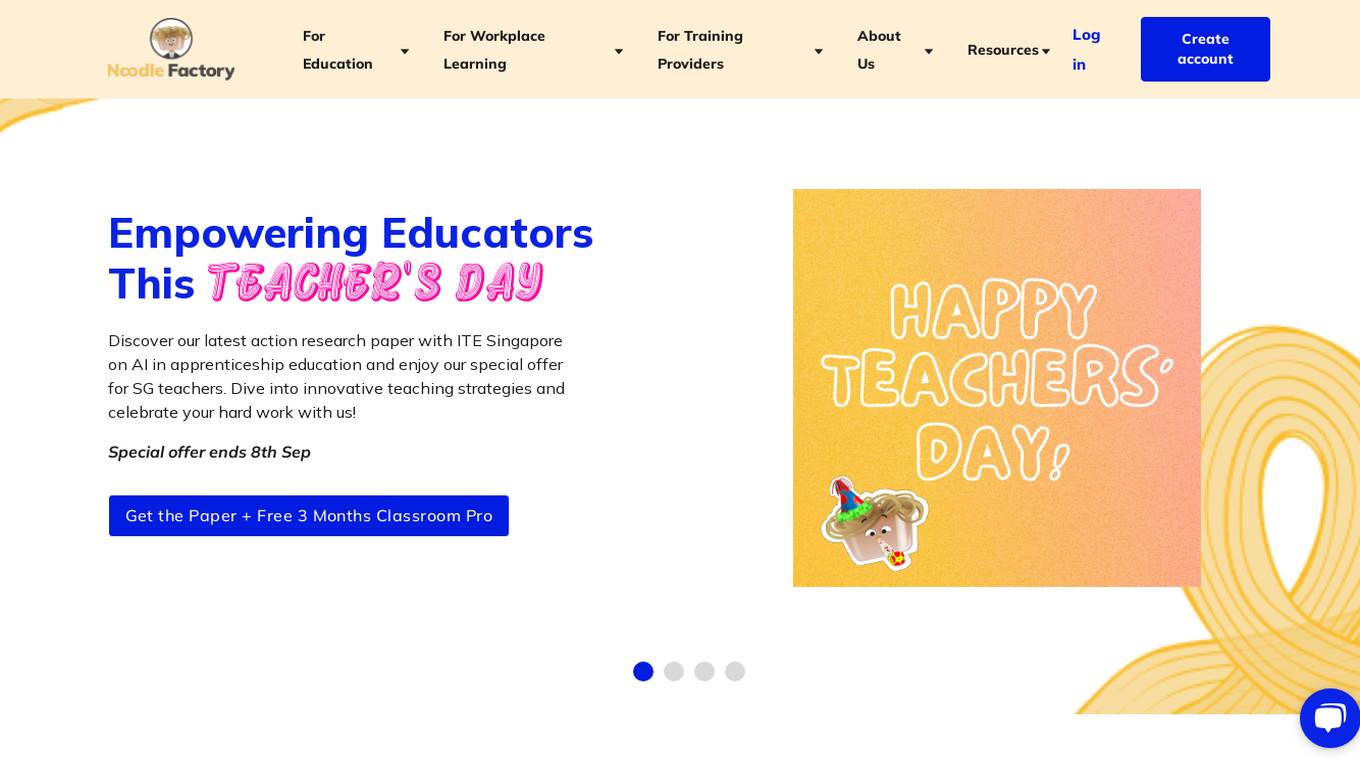
Noodle Factory
Noodle Factory is an AI-powered teaching assistant platform that enables users to effortlessly create AI learning assistants for education. The platform integrates with existing content to provide personalized tutoring, mentoring, and knowledge checks. It offers a secure and flexible solution supporting education at all levels. Noodle Factory empowers educators with innovative teaching strategies and celebrates their hard work through research-based learning outcomes and ethical AI practices.
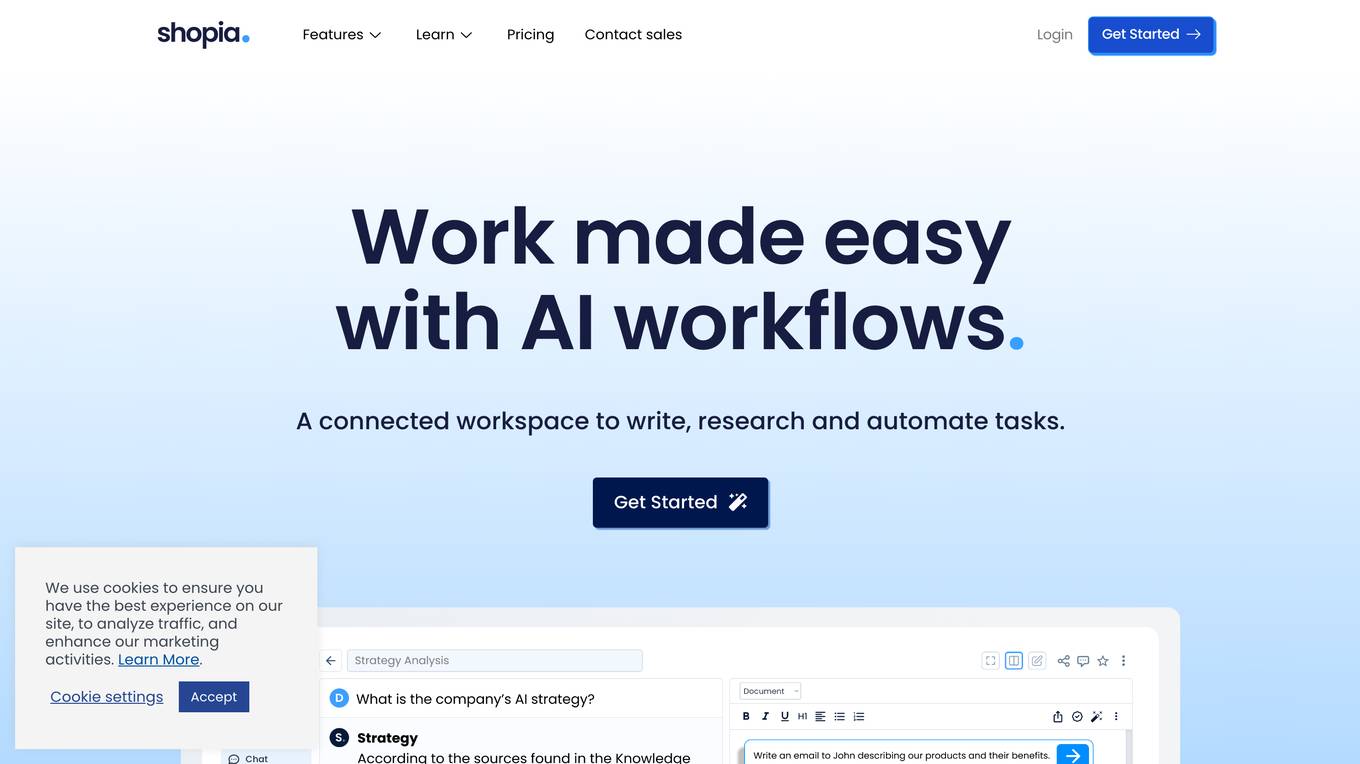
Shopia
Shopia is an AI-powered content creation and research tool that helps users write and research content, automate tasks, and collaborate with others. It offers a range of features, including an AI-powered text editor, research capabilities, workflow automation, and team collaboration tools. Shopia is designed to help users work more efficiently and effectively by automating repetitive tasks and providing them with the tools they need to create high-quality content.
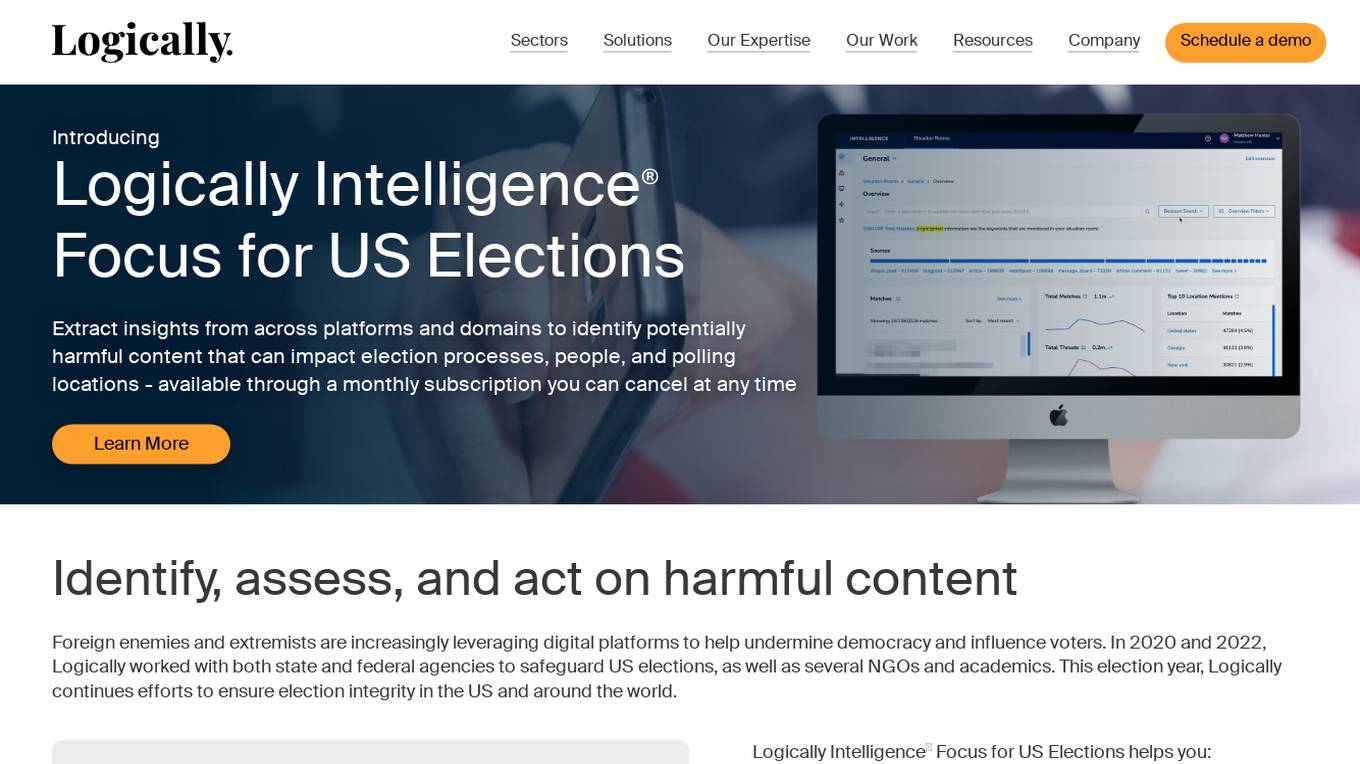
Logically
Logically is an AI-powered platform that helps governments, NGOs, and enterprise organizations detect and address harmful and deliberately inaccurate information online. The platform combines artificial intelligence with human expertise to deliver actionable insights and reduce the harms associated with misleading or deceptive information. Logically offers services such as Analyst Services, Logically Intelligence, Point Solutions, and Trust and Safety, focusing on threat detection, online narrative detection, intelligence reports, and harm reduction. The platform is known for its expertise in analysis, data science, and government affairs, providing solutions for various sectors including Corporate, Defense, Digital Platforms, Elections, National Security, and NGO Solutions.

Hailo
Hailo is a leading provider of top-performing edge AI processors for various edge devices, offering generative AI accelerators, AI vision processors, and AI accelerators. The company's technology enables high-performance deep learning applications on edge devices, catering to industries such as automotive, security, industrial automation, retail, and personal computing.
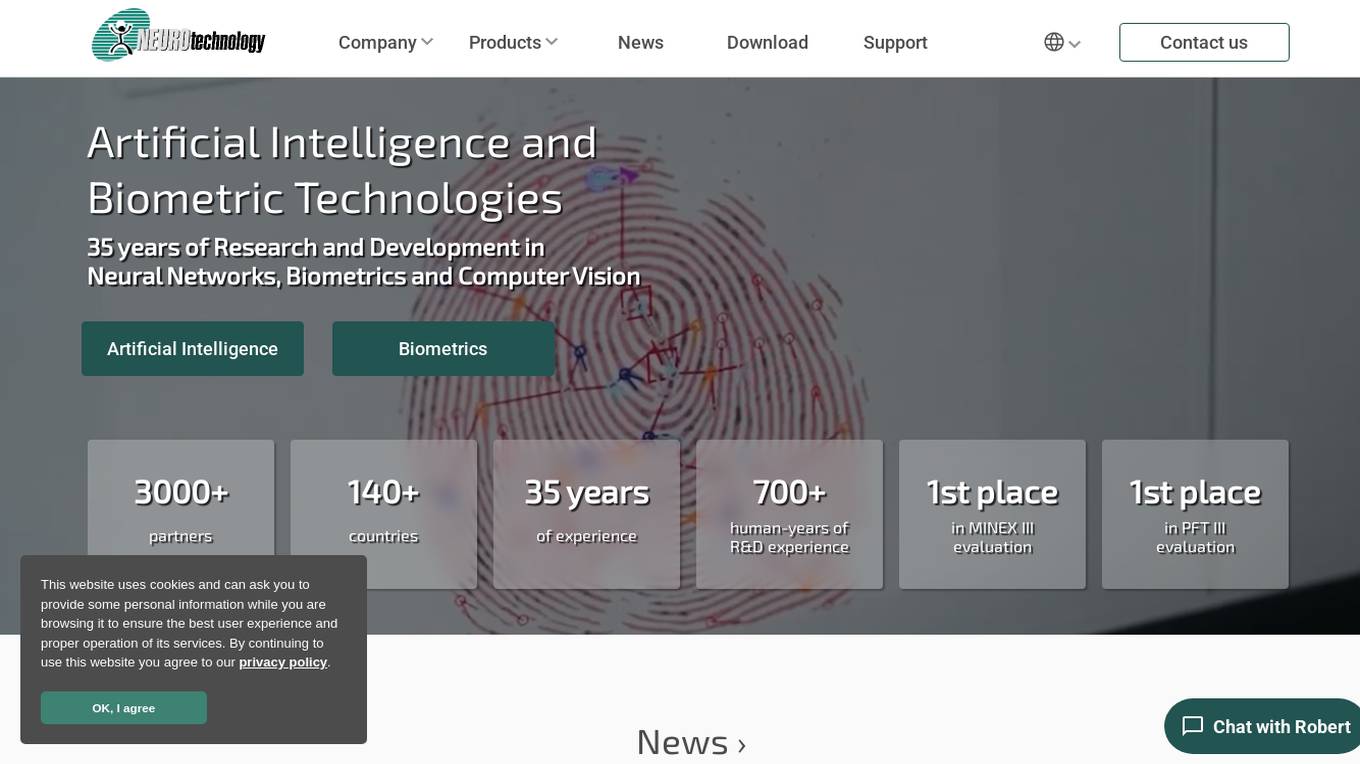
Neurotechnology
Neurotechnology is an AI-driven company specializing in biometric technologies, artificial intelligence, and computer vision. With over 35 years of research and development experience, the company offers a wide range of products and solutions for biometric identification, surveillance, and authentication. Neurotechnology's innovative AI applications are used in various industries, including security, law enforcement, and healthcare, to enhance efficiency and accuracy in identity verification and data analysis.

AnalyStock.ai
AnalyStock.ai is a financial application leveraging AI to provide users with a next-generation investment toolbox. It helps users better understand businesses, risks, and make informed investment decisions. The platform offers direct access to the stock market, powerful data-driven tools to build top-ranking portfolios, and insights into company valuations and growth prospects. AnalyStock.ai aims to optimize the investment process, offering a reliable strategy with factors like A-Score, factor investing scores for value, growth, quality, volatility, momentum, and yield. Users can discover hidden gems, fine-tune filters, access company scorecards, perform activity analysis, understand industry dynamics, evaluate capital structure, profitability, and peers' valuation. The application also provides adjustable DCF valuation, portfolio management tools, net asset value computation, monthly commentary, and an AI assistant for personalized insights and assistance.
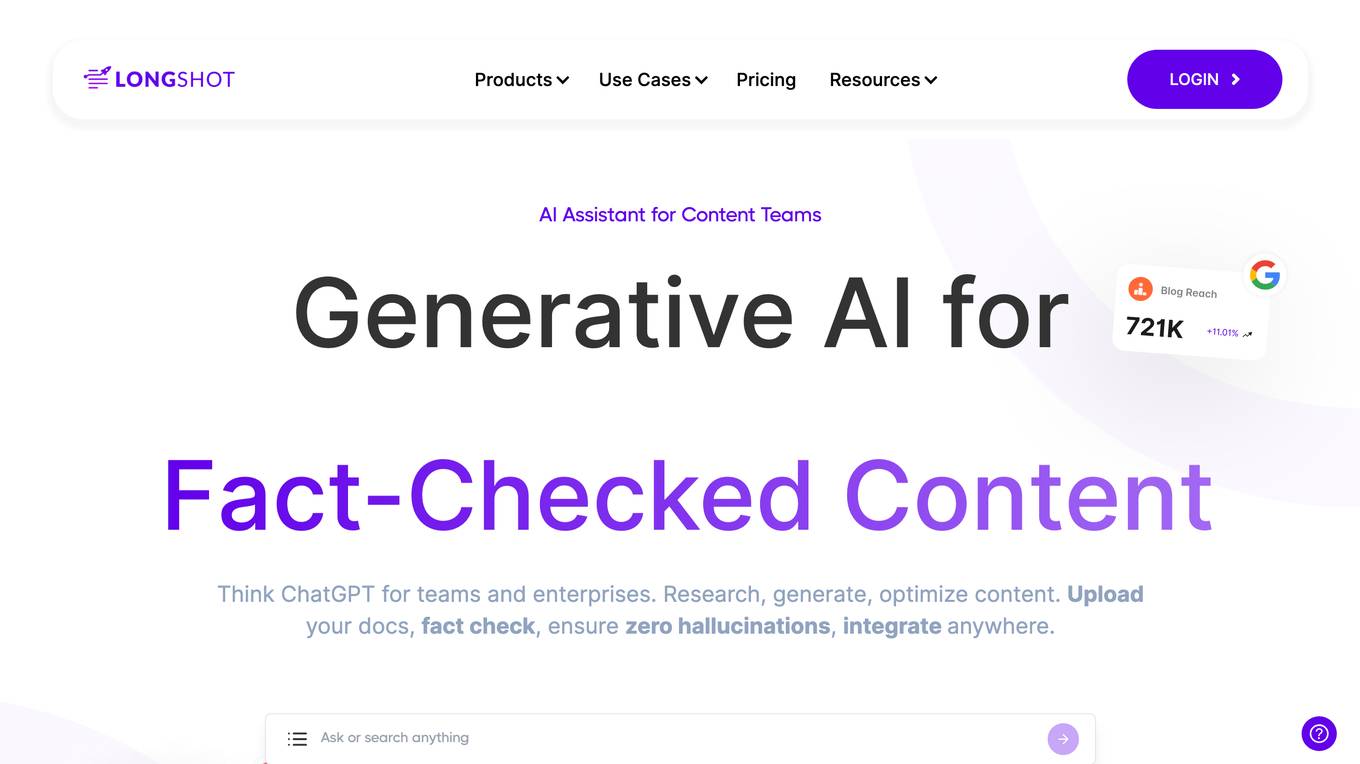
LongShot AI
LongShot AI is an advanced AI co-pilot tool designed to plan, generate, and optimize content products. It offers a comprehensive set of features including Content Planner, AI Workflows, SEO Checker, AI Interlinking, and FactGPT for creating engaging and fact-checked content. LongShot AI seamlessly blends creativity and optimization to help content creators produce exceptional content that resonates with their audience. With a focus on factual content, SEO optimization, and internal linking, LongShot AI revolutionizes content strategy by leveraging AI technology for unbeatable results.
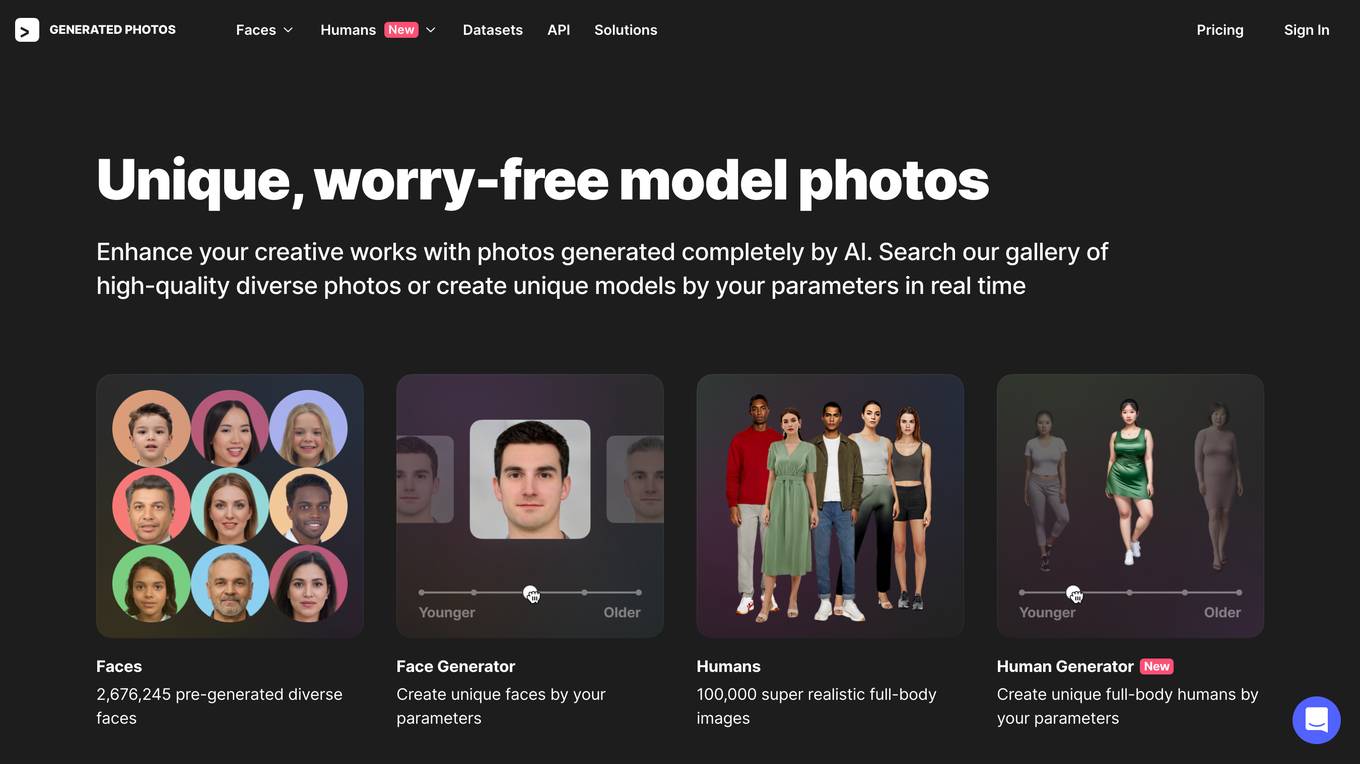
Generated Photos
Generated Photos is an AI-powered application that allows users to create unique, worry-free model photos using advanced AI-generated faces and full-body human generators. With a vast database of pre-generated diverse faces and realistic full-body images, users can enhance their creative works with high-quality photos. The application is perfect for various purposes such as ads, design, marketing, research, and machine learning. Users can search the gallery, create unique models in real-time, and even modify their own photos using the Face Generator and Human Generator tools. Generated Photos offers bulk download options, datasets, and API integration for large projects, making it a versatile tool for businesses and individuals seeking generative media solutions.
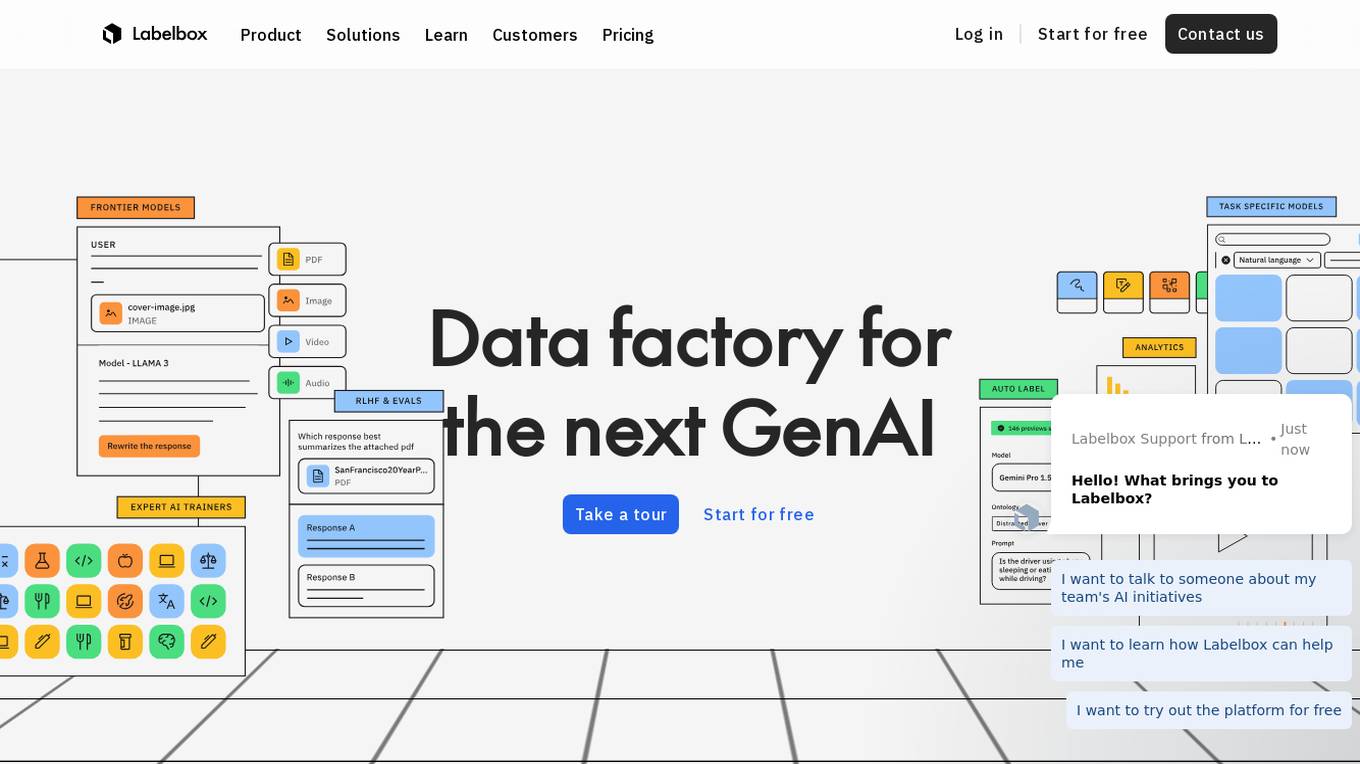
Labelbox
Labelbox is a data factory platform that empowers AI teams to manage data labeling, train models, and create better data with internet scale RLHF platform. It offers an all-in-one solution comprising tooling and services powered by a global community of domain experts. Labelbox operates a global data labeling infrastructure and operations for AI workloads, providing expert human network for data labeling in various domains. The platform also includes AI-assisted alignment for maximum efficiency, data curation, model training, and labeling services. Customers achieve breakthroughs with high-quality data through Labelbox.
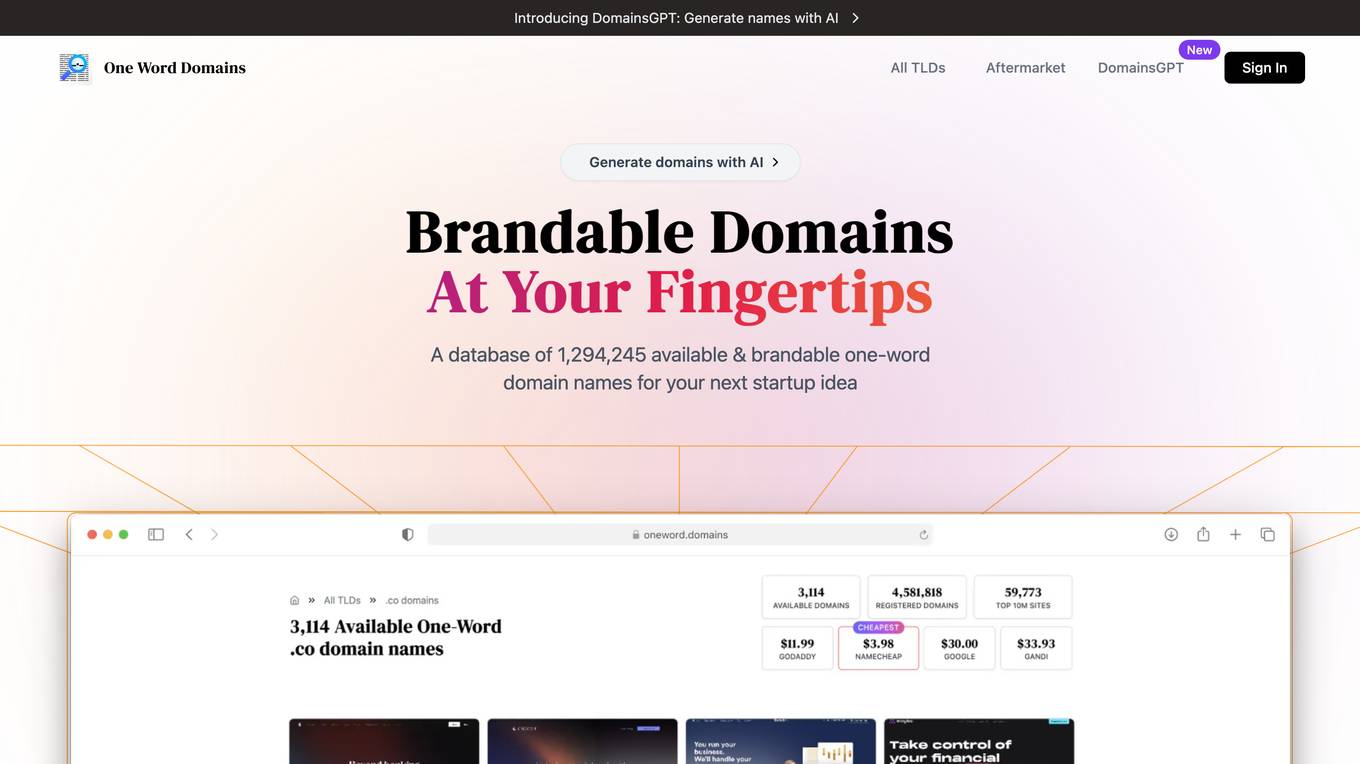
DomainsGPT
DomainsGPT is a powerful tool that helps you generate brandable one-word domain names for your next startup idea. With a database of over 1,294,245 available and brandable one-word domain names, DomainsGPT makes it easy to find the perfect domain name for your business. Simply enter a few keywords related to your business, and DomainsGPT will generate a list of available domain names that match your criteria. You can then filter the results by popularity, length, and other factors to find the perfect domain name for your business.
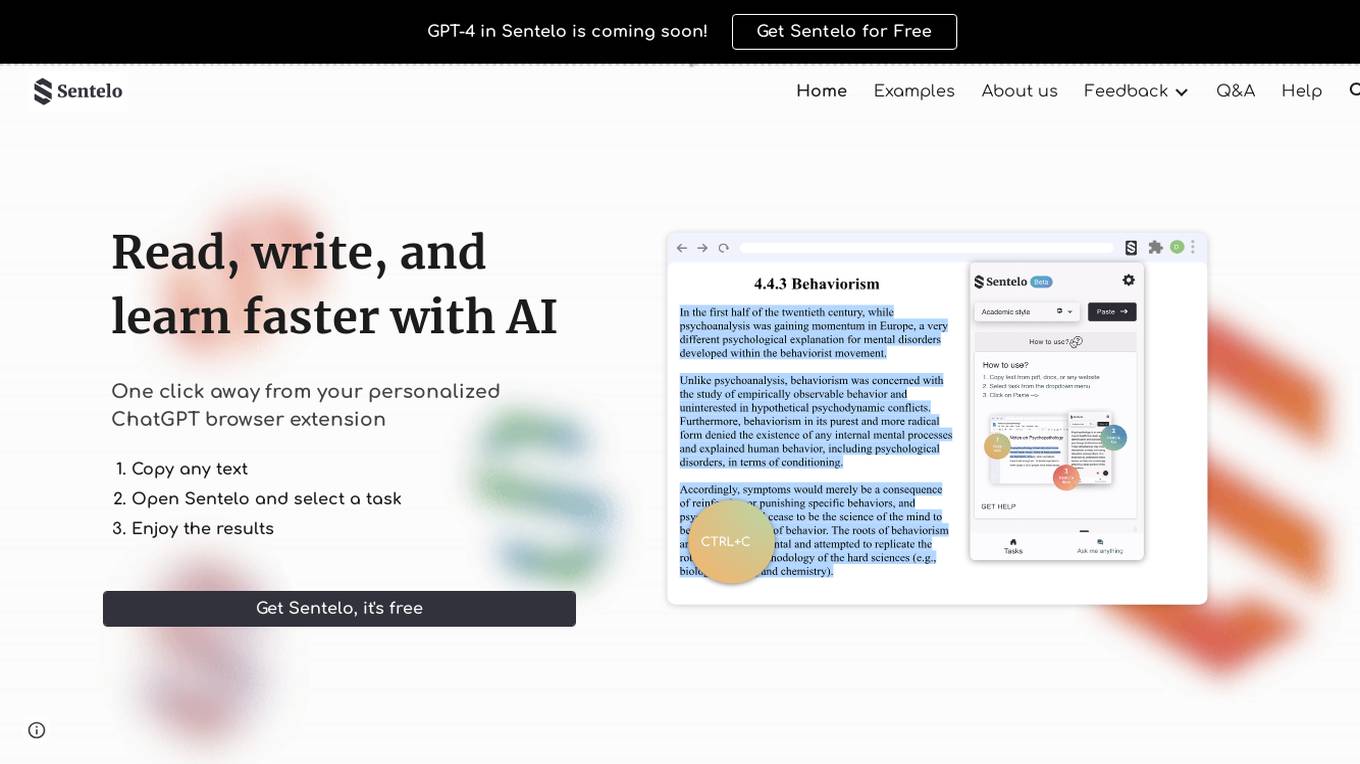
Sentelo
Sentelo is an AI tool that offers fast and reliable information retrieval using a combination of GPT models and fast Information Retrieval technology. It provides fact-checked and up-to-date information with links to relevant resources. Sentelo is designed to help users read, write, and learn faster by offering personalized functions and prompts. It is accessible, fast, and available 24/7, making it a valuable AI learning copilot for boosting creativity, understanding complex topics, summarizing content, and generating ideas.
0 - Open Source AI Tools
20 - OpenAI Gpts
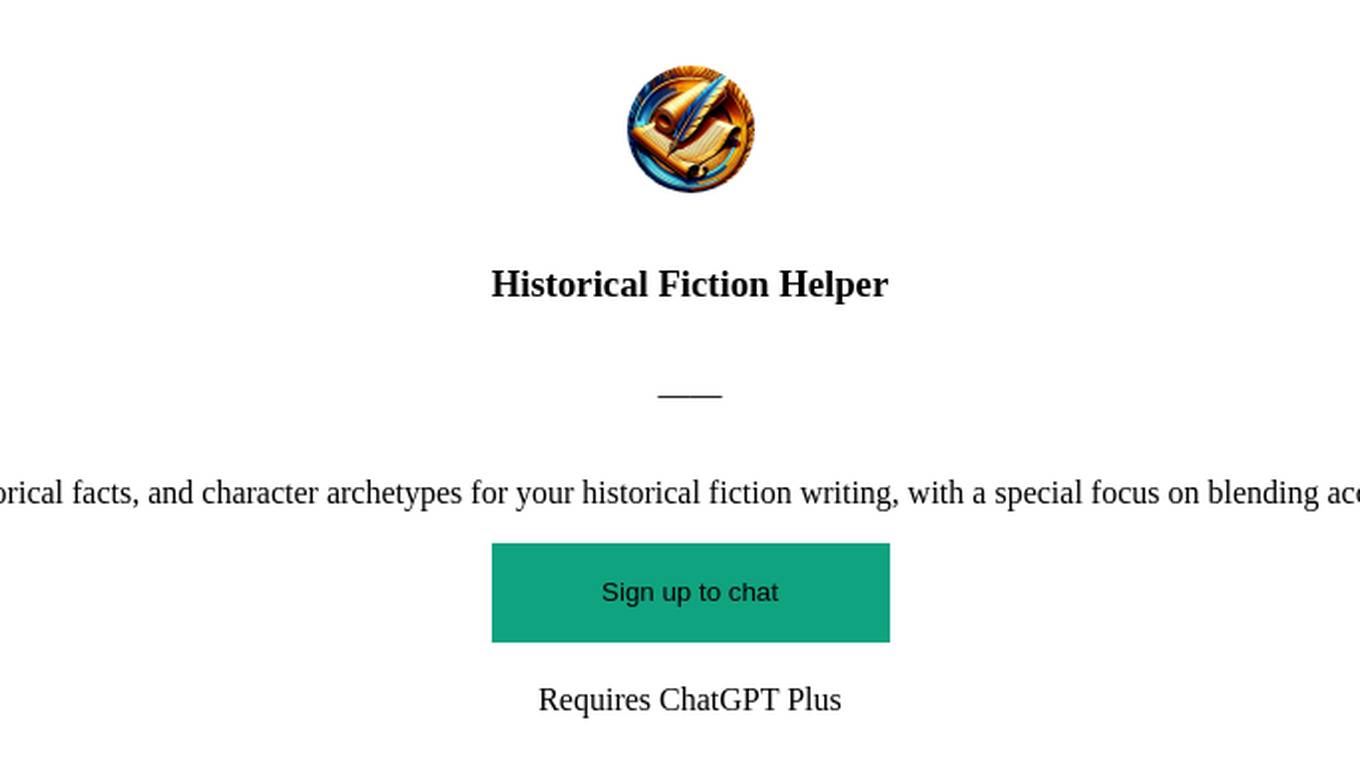
Historical Fiction Helper
Generate ideas, historical facts, and character archetypes for your historical fiction writing, with a special focus on blending accuracy with creativity.
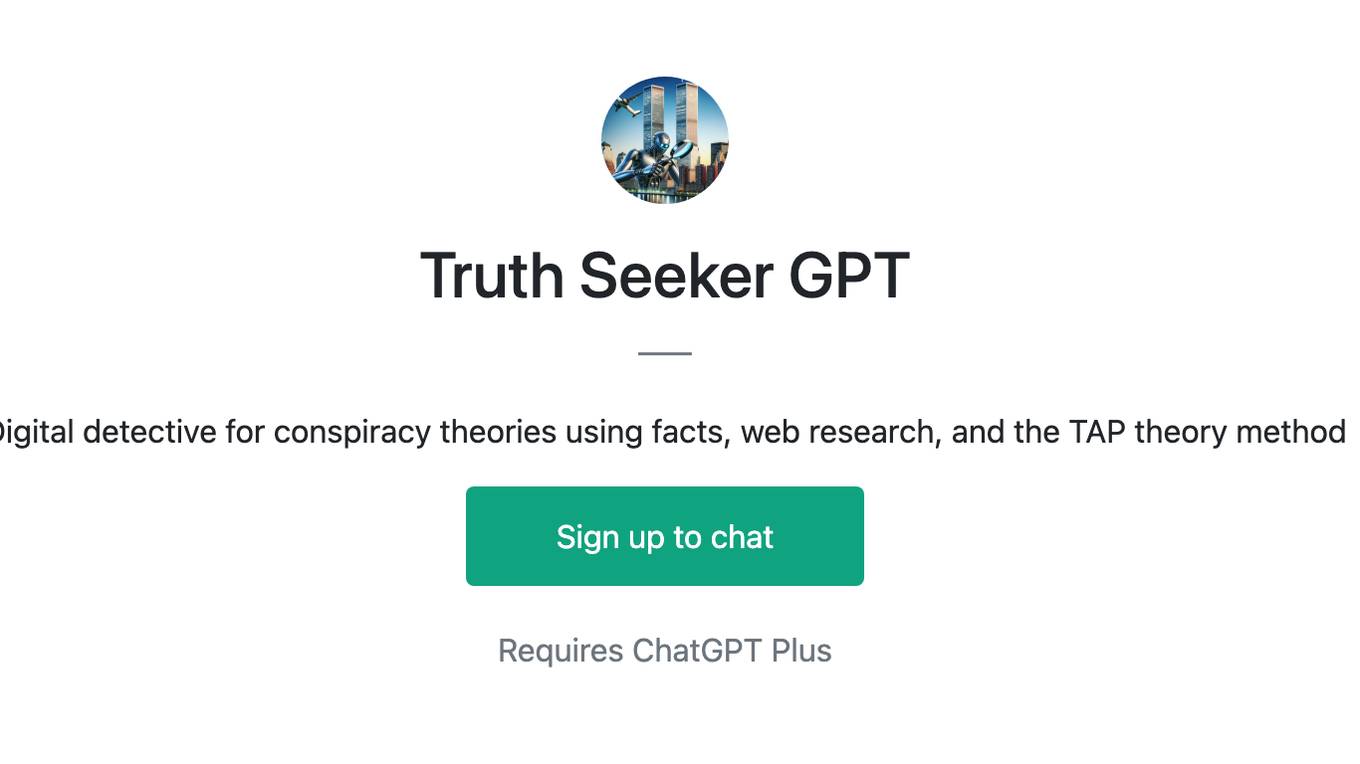
Truth Seeker GPT
Digital detective for conspiracy theories using facts, web research, and the TAP theory method
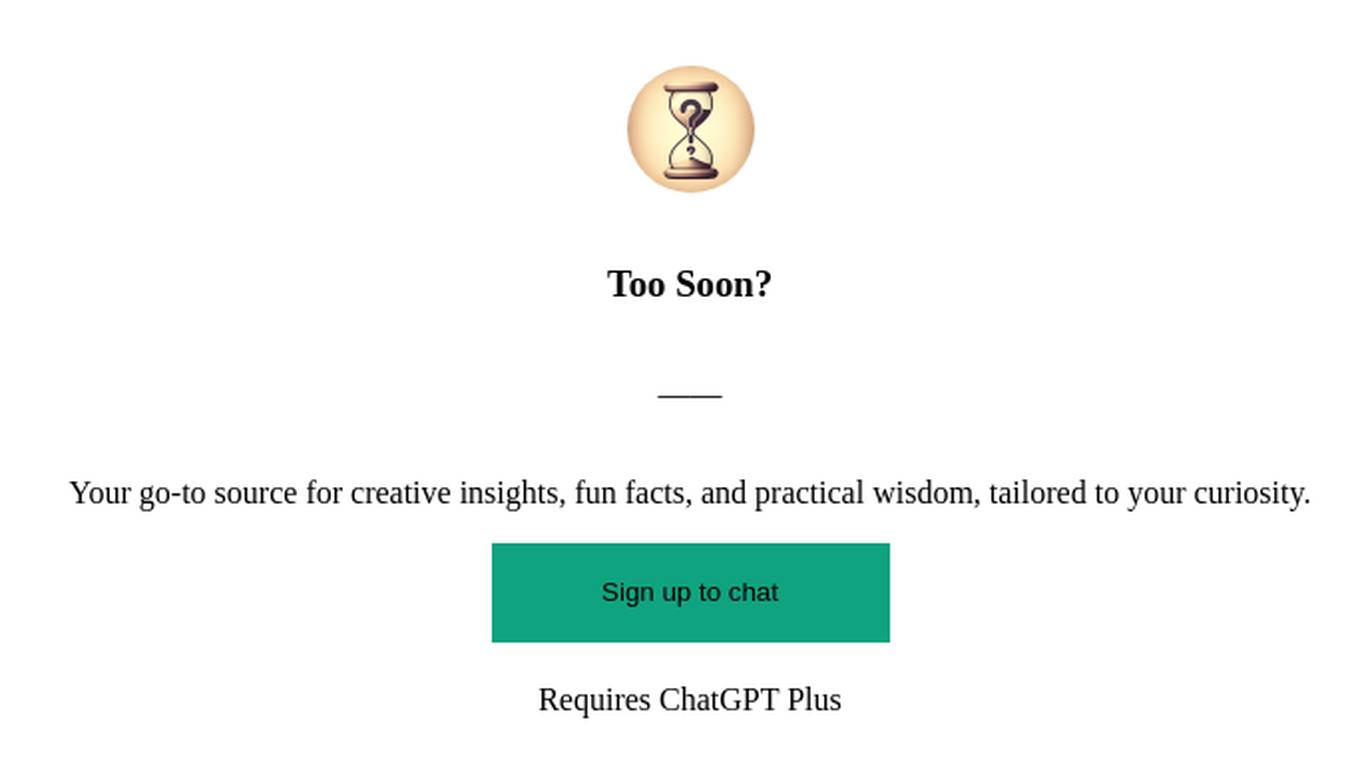
Too Soon?
Your go-to source for creative insights, fun facts, and practical wisdom, tailored to your curiosity.
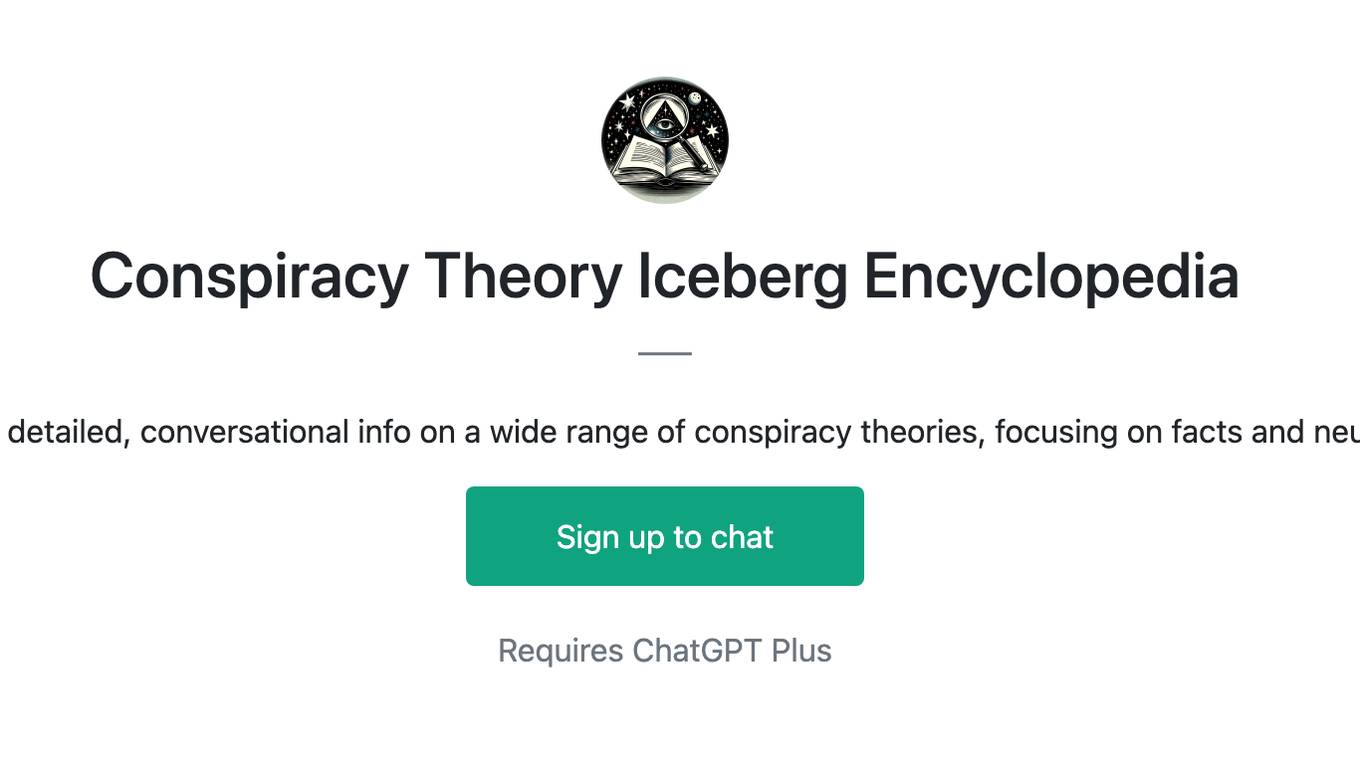
Conspiracy Theory Iceberg Encyclopedia
I provide detailed, conversational info on a wide range of conspiracy theories, focusing on facts and neutrality.

The Evergreen State of Mystery
A GPT focused on unsolved crimes in Washington, blending facts and lore.

Auto Expert
Deep, insightful encyclopedia on automobiles, rich in facts, history, and culture.
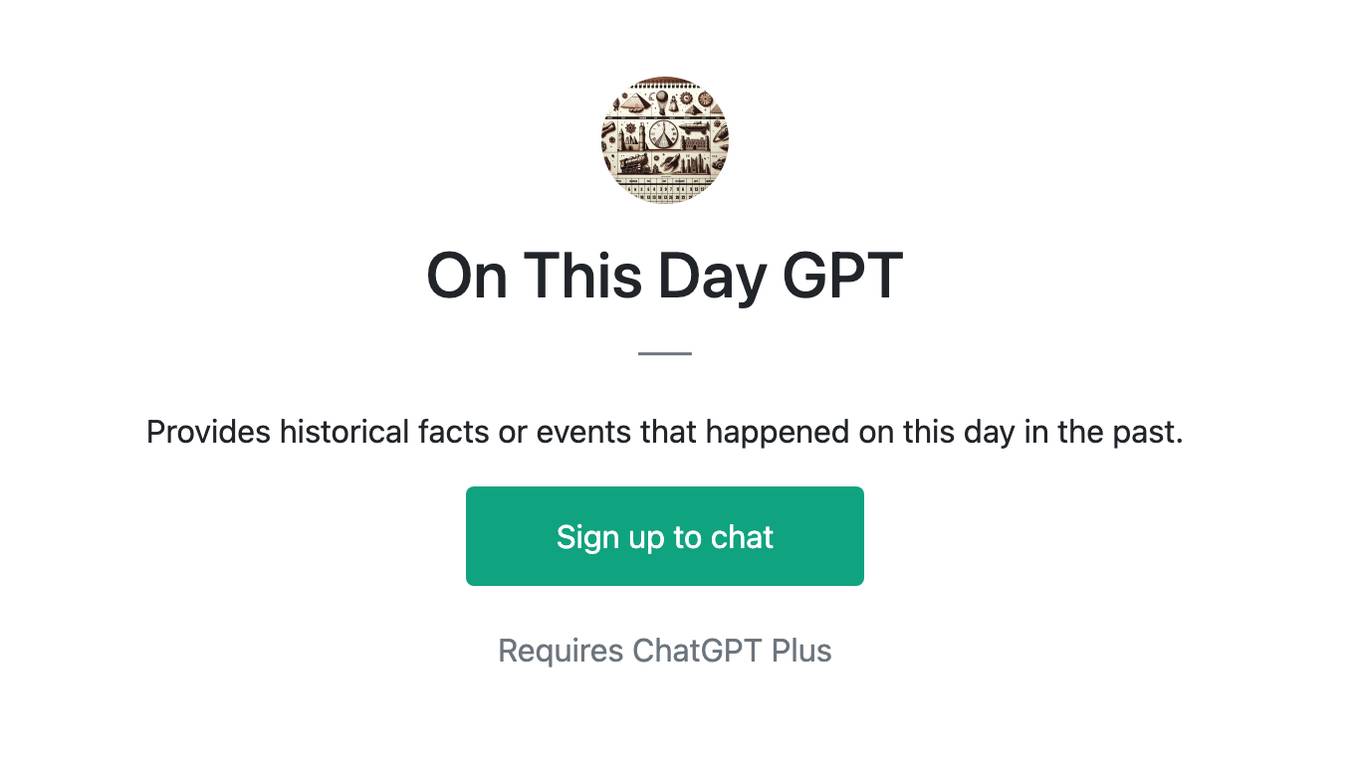
On This Day GPT
Provides historical facts or events that happened on this day in the past.
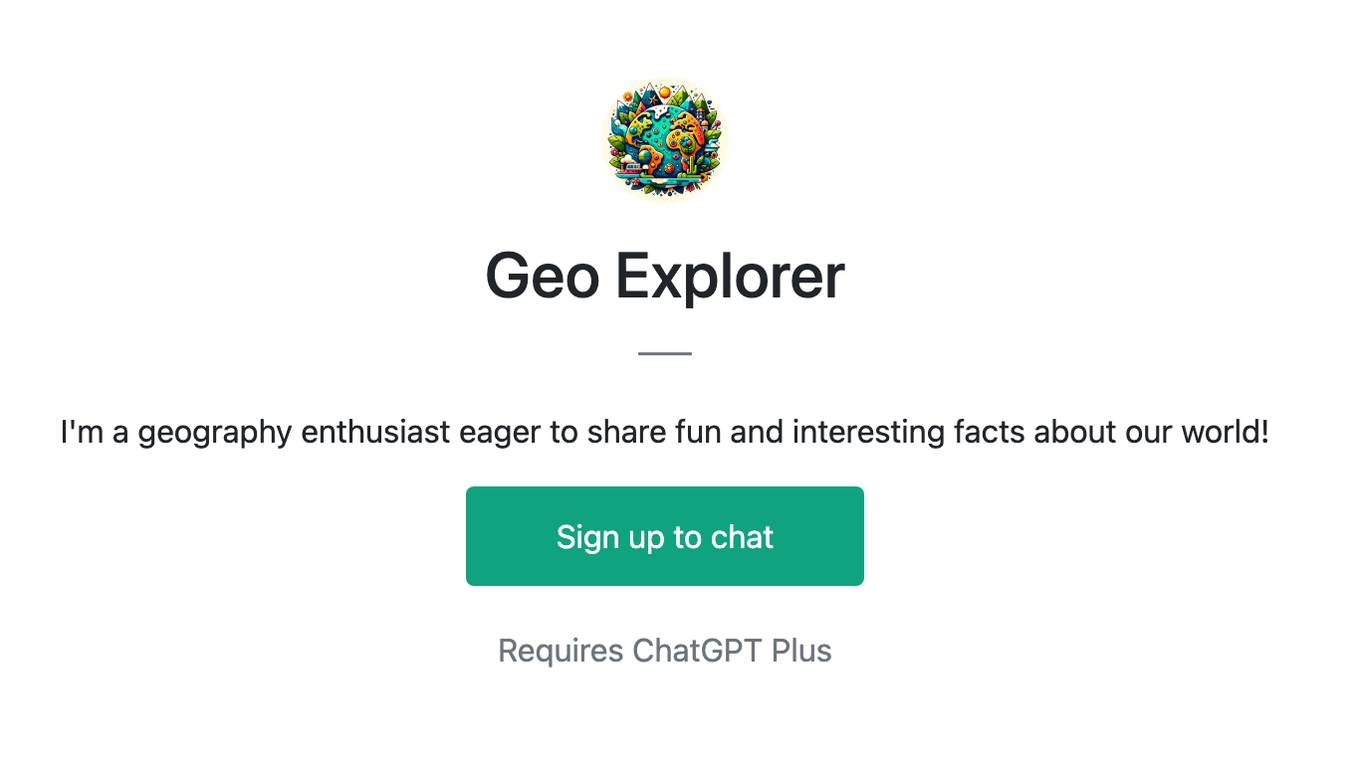
Geo Explorer
I'm a geography enthusiast eager to share fun and interesting facts about our world!
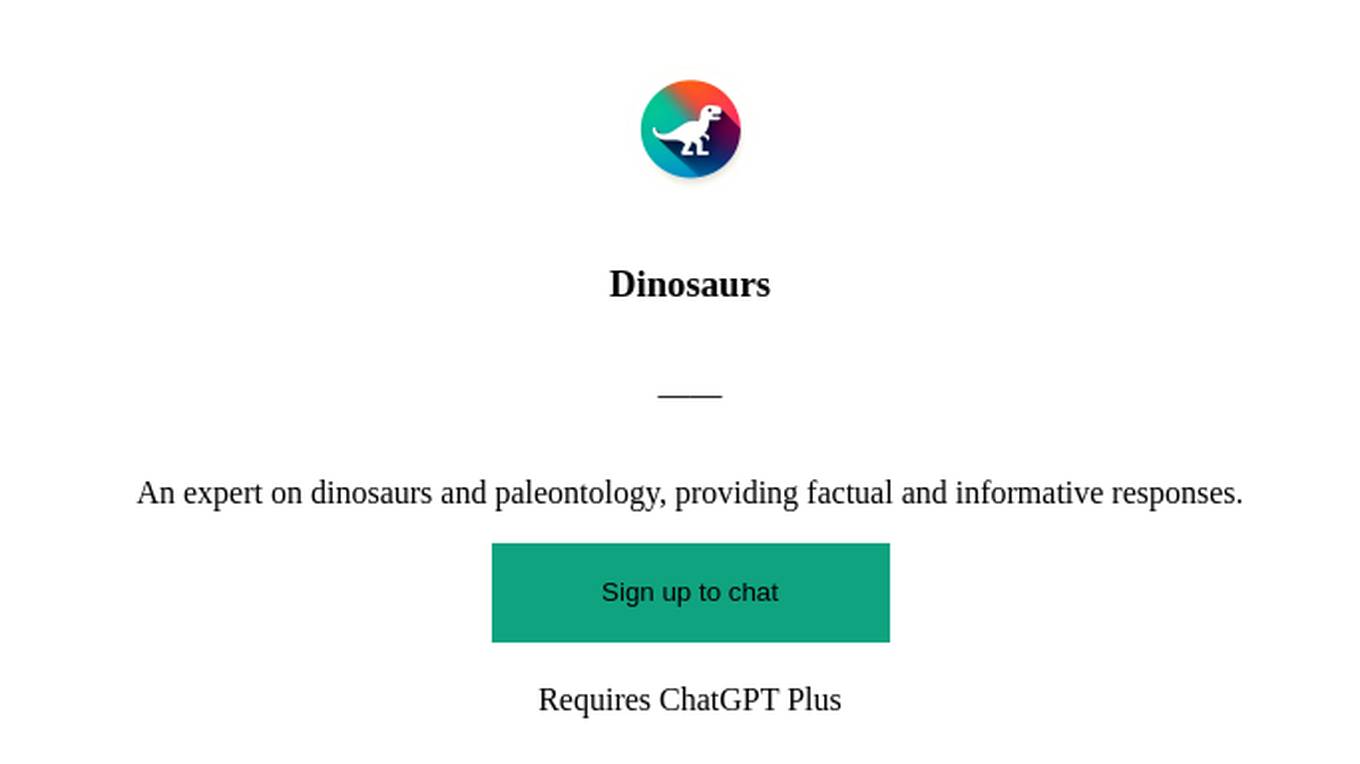
Dinosaurs
An expert on dinosaurs and paleontology, providing factual and informative responses.
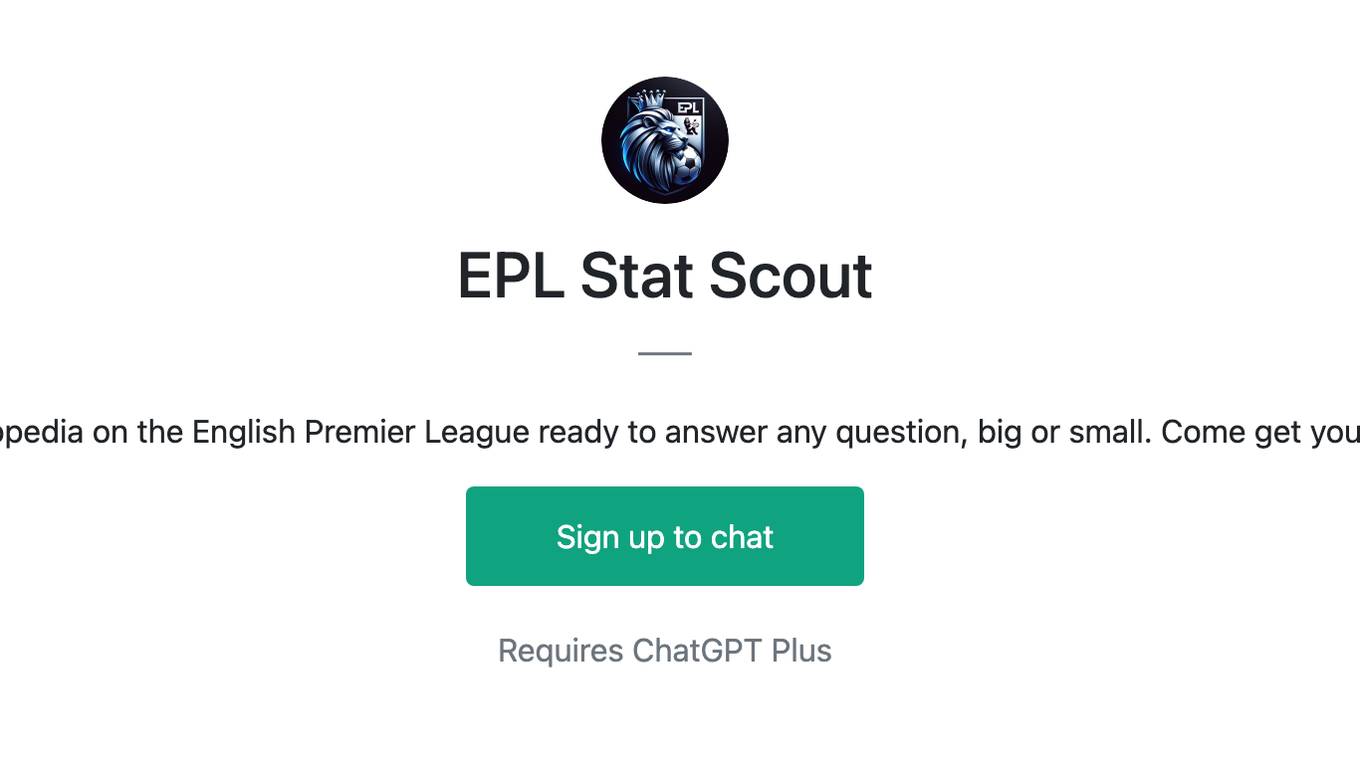
EPL Stat Scout
Your pocket-sized encyclopedia on the English Premier League ready to answer any question, big or small. Come get your stat-tastic facts today!
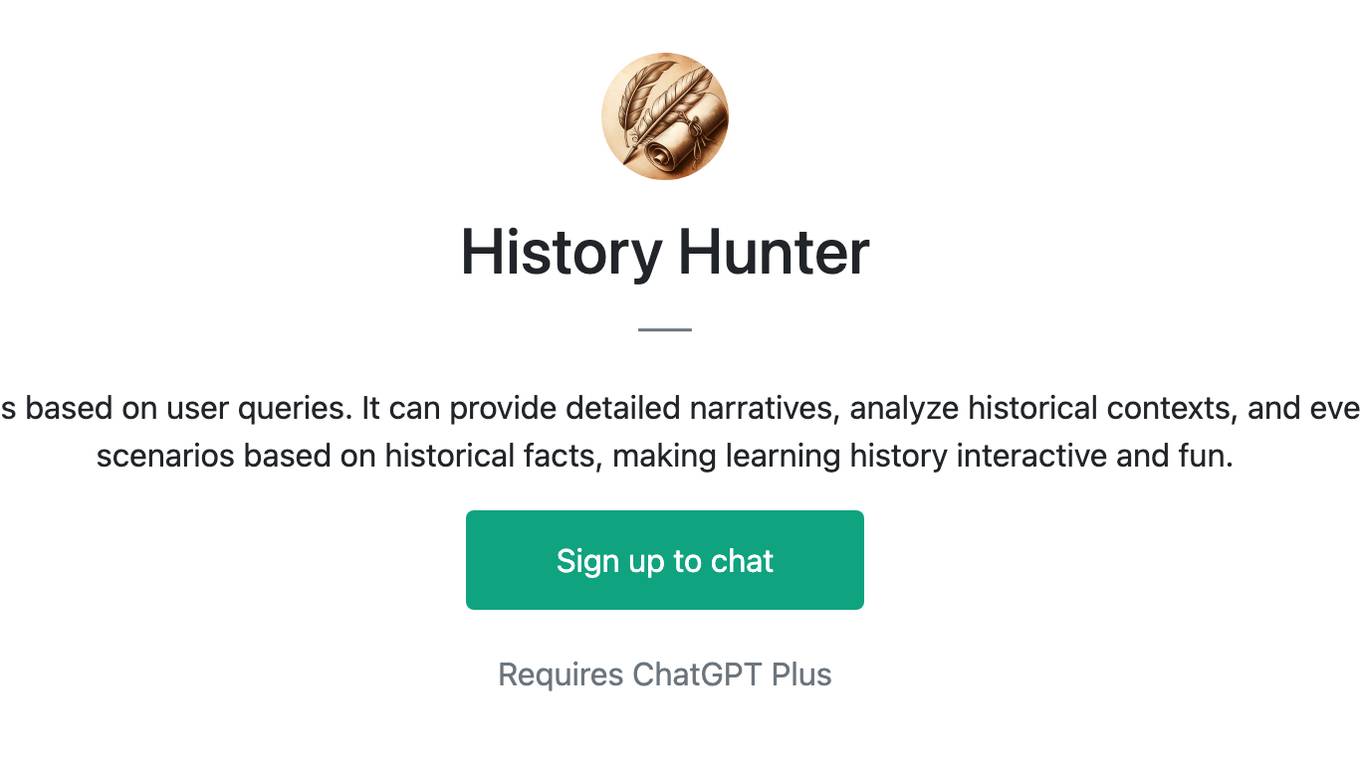
History Hunter
Delves into historical events, figures, or eras based on user queries. It can provide detailed narratives, analyze historical contexts, and even create engaging stories or hypothetical scenarios based on historical facts, making learning history interactive and fun.
